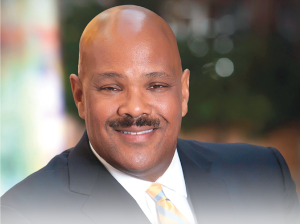
Having money is one thing, whether you have a lot or a little. But knowing what to do with your money is something else altogether.
Although most would never admit it out loud, I’m guessing a large number of people reading this article have either been broke themselves at one time, or close enough to it to get singed, or they have a friend or family member who has suffered through the experience. And sometimes life just happens, and bad things will happen to good people, no matter how upstanding and responsible a life they may try and lead.
But other times, at least a portion of that financial misery might have been avoided with better financial planning. And that is the finding of a recent partnership study released by Merrill Lynch and the Age Wave organization about retirement finances which has implications that are as serious for the barely hanging on to middle class – and below – as it does for those who consider themselves solidly middle class and above.
Bottom line? You better know how to save your money to outlast your retirement. And if you don’t know then you’d better learn. Quick. And in the black community, the issue becomes even more critical.
In general, “We haven’t had role models to teach us how to save up for the long term. When we talk about saving we only save a fraction of what we need,” said Aubrey Lee, First Vice President, Wealth Management, at Merrill Lynch. “A lot of us don’t have role models when it comes to saving and investing.”
“Talking about money needs to stop being taboo,” in the black community.
The report, entitled “Finances in Retirement: New Challenges, New Solutions,” is a first-of-its-kind, four-year, 50,000-respondent investigation “focused on understanding the transforming nature of retirement through seven interconnected ‘life priorities’ – family, work, health, home, giving, leisure and finances.”
Some of the key findings include the following:
- While most Americans realize retirement will be the biggest purchase of their lifetime, costing 2.5 times the cost of an average home, 81 percent say they do not know how much money they will need to fund their retirement.
- While most people say they want to live to the age of 90, only 27 percent of pre-retirees age 50+ feel financially prepared to fund a retirement that lasts 10 years, let alone 20-30 years.
- Americans are saving only a fraction of what they think they should – 5.5 percent1 vs. 25 percent of their annual income (after taxes).
- More than half of millennials feel a secure retirement is beyond reach, compared to 30 percent of baby boomers who feel this way. And millennials expect 65 percent of their retirement income to come from personal sources, including savings and continued employment, far more than earlier generations.
- The three biggest retirement-related financial worries for most Americans are 1) a costly health issue impacting them or loved ones; 2) inflation – the rising cost of life; and 3) not having enough money to do what they would like.
- People say the cost of basic expenses and prioritizing paying down debt are the two biggest barriers to saving more for retirement. And they are far more concerned about “their” personal economy than “the” economy.
“When you look at urban areas it becomes even more critical,” said Lee, who added that in areas like Detroit the importance of informed wealth management is critical.
Although just the name ‘wealth management’ may seem off-putting to some who don’t think they have any wealth to manage, the truth is that understanding finance and finances is a necessary skill that is hardly reserved for the rich. The truth is that everyone who has any money at all makes decisions concerning that money each and every day. The question is whether they are making the right decisions – and whether the adults are passing along a legacy of making smart finance decisions to their children.
“Take your kids and help them to learn how to save early. If you safe early and often you leave a legacy for that next generation,” said Lee. “If we don’t do what we need to do now it becomes systemic.”
And if we don’t train our children in the ways of making smart financial decisions, then we run the risk of leaving that door open for someone else to step in and put them on the wrong path.
“If we don’t have a role model then we don’t have information inside of our family structure so that means we need to go somewhere else,” he said.
The most important thing to remember about wealth management is that you don’t need a whole lot of wealth before you start learning how to manage it. That is one of the worst misconceptions.
“It doesn’t matter how much money you have there is someone who can help you get started. There’s an old saying; start where you stand.”
Click on the following links for more information about Merrill Lynch and/or the Age Wave organization: